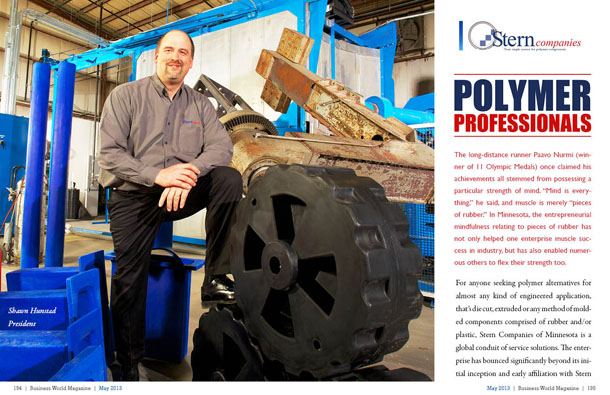
Polymer Professionals

The long-distance runner Paavo Nurmi (winner of 11 Olympic Medals) once claimed his achievements all stemmed from possessing a particular strength of mind. “Mind is everything,†he said, and muscle is merely “pieces of rubber.†In Minnesota, the entrepreneurial mindfulness relating to pieces of rubber has not only helped one enterprise muscle success in industry, but has also enabled numerous others to flex their strength too.
For anyone seeking polymer alternatives for almost any kind of engineered application, that’s die cut, extruded or any method of molded components comprised of rubber and/or plastic, Stern Companies of Minnesota is a global conduit of service solutions. The enterprise has bounced significantly beyond its initial inception and early affiliation with Stern Rubber Company, a business that sprung to life in 1969 as a custom molder of rubber parts. While that operation is now known as Stern Manufacturing (functioning under the second generation of family leadership via founder’s son, Terry Stern), it is essential to understand that Stern Companies has an exceedingly differentiated business model and innovative approach to service, which is not so much a byproduct of the Stern family, but the ingenuity of another professional, namely Stern Companies Owner Shawn Hunstad.
Raised in the Red River Valley region of Minnesota, Hunstad is one of those rare types of people that fully embrace the philosophy that challenges can be overcome by those committed to collaboration, cooperation and open communication. And to be sure, these are not simply concepts to which he adheres in his professional obligations, but a routine aspect of his public and personal duties as a leader on his church council and as an elected representative on the local school board.
 More than 20 years ago, Hunstad was hired by Stern Rubber Company as an on-the-road salesperson. Stern Rubber Co. specialized in custom molded rubber components, particularly those used in applications providing a sealant necessary in the manufacturing of fire hydrants or applications used in various recreational vehicles created by Polaris Industries, Inc. Hunstad logged a lot of miles and negotiated a lot of deals, and to such extent, it became a challenge for his customer service representative to keep-up with the processing of orders. Hunstad eventually had to come off the road and take-up office space to assist with fulfilling demand. The housing market was booming. Manufacturers were expanding product lines. There were so many orders coming through that Stern Rubber Co. began having a hard time keeping-up with the demand; therefore, they began farming some of that work out to other rubber companies. Through that process, Hunstad was increasingly engaged at an intersection between the rubber component suppliers and the manufacturers that required their goods.
Yet throughout this time, changes were occurring in the industry. Manufacturers increasingly sought the advantages and efficiencies wrought from plastic injection molding systems, or other processes not necessarily congruent with Stern Rubber Co’s capabilities. Hunstad, having worked with so many different suppliers, understood exactly which services were provided by each respective operation. So, when a manufacturer requested a component, whether it was something derived from rotational molding, extrusion, die cut or other, he knew exactly how to source the material. Since Stern Rubber Co. was a provider of custom molded rubber components, the intent to serve customers through this new, larger capacity, didn’t align well with the existing business model. This is what led to the establishment of Stern Companies.
Any Need Accommodated
In the beginning stages of this new endeavor, Hunstad says he spent more time connecting with suppliers than he did connecting with customers. He sought out suppliers working in special niches, from injection molding and blow molding to extrusion and all other kinds of customized delivery systems. Some specialized in the production of large parts while other produced small components. As Hunstad says, “all have unique areas of specialty.†When meeting with suppliers, Hunstad would ask for them to eliminate the sales mark-up typically incorporated in the pricing of components. Since he would be serving as the salesperson for the jobs he would deliver, this ultimately meant the suppliers weren’t losing anything in the transaction; in fact, they were actually getting more business. For the manufacturer, who typically absorbs the sales fee when purchasing products, Hunstad was able to provide parts for the same price they would have paid in the first place. Yet there was another advantage. Hunstad refers to the range of components utilized in the manufacturing of recreational vehicles unique to a company the size of Polaris. Given the range of rubber or plastic applications within each product line, the company is forced to work with a range of different suppliers, which results in time, energy and cost to keep track of it all. That problem is ultimately eliminated by working with one company from which all materials can be sourced. This is the genius behind Stern Companies.
As companies have increasingly moved to gain efficiencies from consolidation, Stern Companies has prospered by becoming a one stop source for practically any kind of rubber or plastic component. From industrial implements and waterworks to snowmobiles and other forms of engineered innovation, Stern Companies has facilitated the components needed by manufacturers which suppliers need to sell. And ironically, that’s a very transparent process. As the middleman in the equation, one might think Hunstad would do all in his power to prevent the manufacturer and supplier from coming together in such a way as to negate his role, but NO. He believes in transparency and openness, so suppliers know exactly who the manufacturer is that requires parts and the manufacturer knows exactly who is producing the parts. “Some may find that scary,†says Hunstad. “I think the more open you are, and the more transparent it is … the better it is for all involved.â€
That philosophy has only gone afoul on one occasion, he concedes. Some years ago, in the midst of the economic recession, Hunstad encountered a situation where he was only able to source a particular large-sized component from a singular supplier that specialized in that manner of production. The manufacturer was undertaking a little belt-tightening and ultimately began dealing solely with the supplier, a maneuver that ultimately cost Hunstad an estimated $15 million of business over time. Fortunately (or unfortunately), the manufacturer learned that it wasn’t really saving that much in the way of cost by going around him. The valuable lesson for Hunstad was realizing the importance of working with numerous suppliers with numerous capabilities, and never depending too strongly on one singular source for a specific material.
Having established what may be the largest network of suppliers in the industry; Stern Companies can today provide manufacturers with all manner of options. Autonomy adds to the advantages for manufacturers. For example, if the manufacturer requires a component and talks to a company doing compression molding, the salesman would typically attempt to sell the engineer on the benefits of that production system, when in fact, an injection molded platform would be more efficient and cost effective. Since he doesn’t have an agenda to sell one type of production method over another, Hunstad says he can meet with engineers, acquire an understanding of the specific part they need and the application in which it will serve, and provide several alternatives based solely on the manufacturer’s need, free of bias for one particular supplier or the next. “I don’t have a direct affiliation with any one supplier, so I can give an unbiased opinion on what may work best for the best price. The role of Stern Companies is to provide the means to access any solution,†says Hunstad.
 Rotation and Assembly
Business has been good at Stern Companies, but recent developments are making it even better. The company has created a new division specializing in rotational molded components as well as another which focuses on assembly services. Since launching those services, the company has secured a contract to produce components and fulfill assembly work critical to manufacturing of agricultural equipment of Geringhoff, a more than century-old manufacturing firm headquartered in Germany. Geringhoff recently announced plans to establish a new $20 million manufacturing plant in St. Cloud, Minnesota. Hunstad’s company will be providing components and assembly services involving Geringhoff’s line of corn-harvesting equipment.
In terms of the future, Hunstad believes there will be increasing opportunities to serve in the agriculture sector, which is faring better than some industries. He also believes that with the drive to increasingly lightweight vehicles for fuel efficient standards, whether that’s automobiles, snow mobiles or some other manner of transport, manufacturers will increasingly seek out solutions involving polymers/plastics which weigh less than metal, but are equally durable, if not better, in some applications. Hunstad says scientific advances in the production of plastics will lead to a new era of innovation in manufacturing, and Stern Companies is posed to support that process.
He also notes that economic factors continue to prompt consolidation at a lot of companies. He feels that by adding rotational molding and assembly services, Stern Companies is posed to deliver value-added capabilities which will result in greater business.
“We went through tough times in the recession like everyone else, but have come out of that with a different perspective,†says Hunstad. “When everyone was growing in the early 2000s, it felt like you couldn’t do anything wrong. Today, we’re very diligent about growth and we understand the business we’re going after. We’re diversifying, looking for new customers, and continuing to focus on services that add value and benefit to the customers we already have.â€
While Stern Companies specialize in rubber and plastic goods, Hunstad still sees his role as something of a matchmaker or builder of a bridge between suppliers and manufacturers. He says by focusing on service, by being open and honest, and by being willing to not get in the way, relationships can more readily happen. In Hunstad’s perspective, “the building of relationships has been our key to success.â€
For more information, please visit their website at: Â Stern Companies


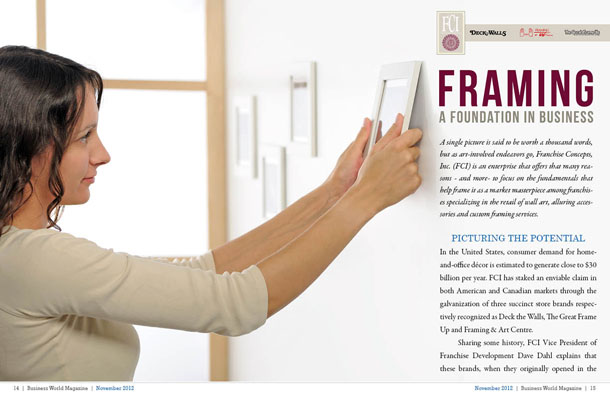
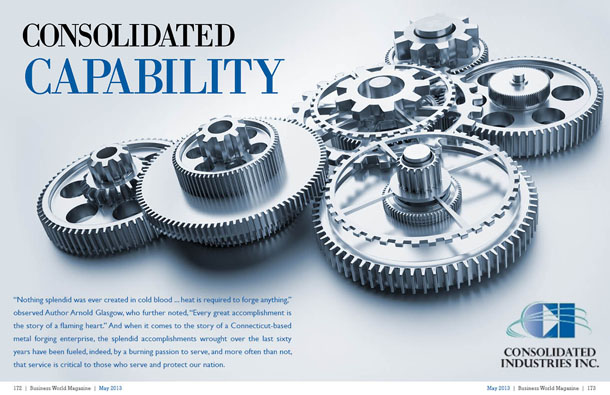
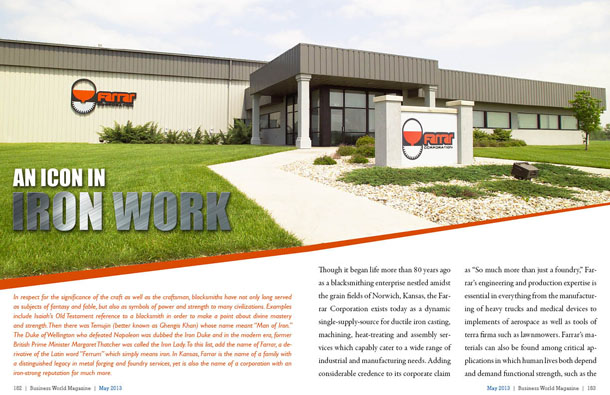


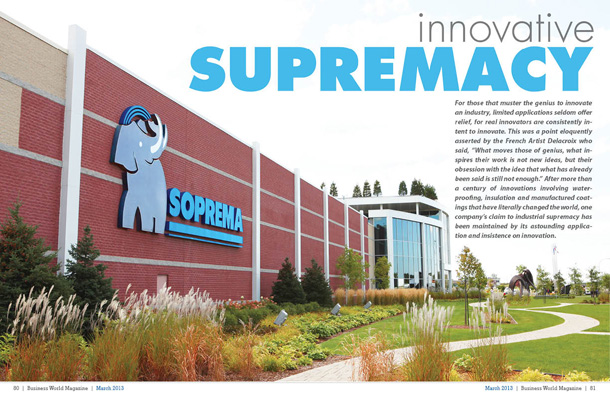
“Mind is everything” Hope to work with the company.
Comments are closed.